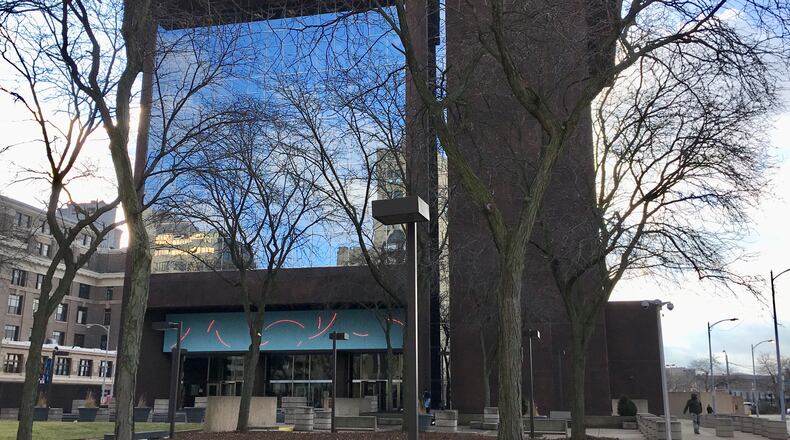Sargus said judges, court staff, clerks office and probation employees are still getting paid, but that may end soon.
“We hope to be able to pay everybody for at least another couple of weeks,” Sargus said, noting that assistant U.S. attorneys and federal public defenders are among those disrupted. “There are people around us who affected by this.”
Spokeswoman Jennifer Thornton said that the Southern District of Ohio U.S. Attorney’s Office in Dayton, Cincinnati and Columbus “has been functioning with only excepted personnel since the start of the shutdown” on Dec. 22.
A federal court website reported Monday that "the Judiciary has continued to operate by using court fee balances and other 'no-year' funds" and that the "Administrative Office of the U.S. Courts has revised its original estimate and now is working toward the goal of sustaining paid operations through Jan. 18, 2019."
Sargus said there could be a point when funding runs out that the courts “have to go through every person on staff and determine if they are essential to public safety or not.”
The judge said essential employees must then work — without retro pay guaranteed — and eventually trials could be affected because jurors couldn’t collect their $50 per day.
“If things were to continue like this — and we certainly hope they don’t — then we would be in a situation where the jurors would not be paid,” Sargus said.
The courts website said that in order to achieve that goal, “courts have been asked to delay or defer non-mission critical expenses, such as new hires, non-case related travel, and certain contracts.”
The website also said that if existing funds run out and new funds not appropriated, the Judiciary “will operate under the terms of the Anti-Deficiency Act, which allows ‘essential work’ to continue during a lapse in appropriations.”
“During a government shutdown, our office continues its essential public safety and national security missions,” Thornton said of the U.S. Attorney’s Office. “That means employees working on those functions are required to work, without pay, while shuttered.
“Other employees are furloughed and required not to work. Our support staff is on a rotating skeleton crew.”
Thornton said that, generally, criminal litigation continues without interruption and civil litigation is curtailed or postponed.
“We have a bare minimum civil staff excepted on any particular day to handle any matters the court says cannot be postponed,” Thornton said.
The U.S. Attorney’s Office has about 110 employees in the three offices with half or more working without pay on any certain day during a shutdown.
A general order was issued Dec. 26 for a stay of all civil cases in which the United States is a party because civil lawyers in the Dept. of Justice are on furlough.
Federal Public Defender Deborah Williams did not immediately return a message seeking comment. But Sargus said he and Williams spoke Monday about how defense attorneys were in the same boat.
MORE: Read other stories from Mark Gokavi
About the Author
